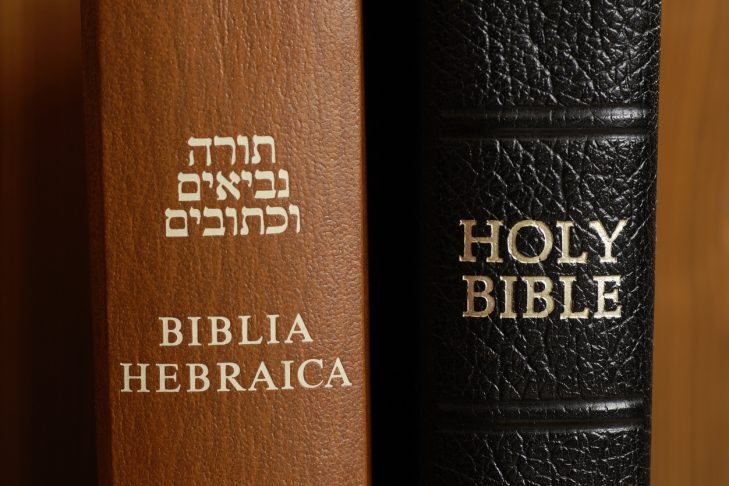The recent launch of 929English, a counterpart to its Israeli cousin 929Tanakh, is similarly poised to change the conversation about Jewish learning. The international project, which draws its name from the number of chapters in the Hebrew Bible that comprise the Torah, Prophets and Writings, has been an internet sensation in Israel. 929Tanakh was launched over three years ago on Hanukkah with text and commentary on the first chapter of Genesis.
The two projects briefly intersected this past summer. Just as 929Tanakh was finishing its first cycle of study on July 18, 2018, the 929English site launched three days earlier on July 15. It is scheduled to conclude with the last chapter of II Chronicles on Feb. 2, 2022. The overarching goal of both projects is to engage Jews from all walks of life by reading one chapter a day of Tanakh, five days a week. The power of the internet enables a given chapter to come to life with innovative commentaries and related features, such as video. The Israeli site tracks close to 300,000 visitors a month.
With financial backing from Israel’s Education Ministry, 929Tanakh was the brainchild of Rabbi Benny Lau, a Modern Orthodox rabbi, and Israeli Deputy Education Minister Avi Vortzman. Both men wanted to explore the possibilities of bringing Torah to a secular audience.
As it turns out, 929Tankah is to the Hebrew Bible what Daf Yomi—which translates as a “daily page of study”—is to the ongoing learning of the Talmud. Over the course of seven-and-a-half years, participants read every tractate of the Talmud on the same schedule. First introduced in 1923, the spirit of Daf Yomi hovers over 929Tanakh. Both projects have created social networks and study groups, and the technology of the internet has raised the projects to a new level of engagement.
Poets, musicians and graffiti artists have contributed to the Israeli site. The bylines of Israeli star novelists Etgar Keret and A.B. Yehoshua have been featured on 929Tanakh. Lau has been quoted in the Israeli press about the site’s ecumenism. “Everyone keeps his own belief—each with his own shita [view]. With his own derekh [path]—but we have the same language,” he told Tablet Magazine in 2015. “We read the same book.”
Rabbi Adam Mintz, a Modern Orthodox rabbi with a congregation on the Upper West Side, heads up the 929English site. The site has partnered with Drisha Institute for Jewish Education, a Modern Orthodox institution. Shira Hecht-Koller, Drisha’s head of communal engagement, also serves as the director of education for 929English.
Mintz told JewishBoston in a telephone conversation that the site’s pluralism is reflected in its content from across the English-speaking world. “Pluralism is all over the site,” he said. “We’ve reached out to different organizations to create partnerships. We want people to use and study from our website.”
To that end, 929English is in the process of creating study groups. The first official pilot group will launch in Baltimore, but Mintz surmises that informal English-language study groups have already sprung up elsewhere in the United States and beyond.
Accessibility is key to the site’s success. On the left side of 929English is the Jewish Publication Society’s translation of a given biblical chapter. There is also an audio reading of the material of the day. Rabbi Jonathan Sacks, the former chief rabbi of England and 929English’s international president, contributes a daily article, which is front and center on the site. He is joined by what Mintz described as “10 to 12 diverse voices. We’ve already finished the Book of Genesis, and Exodus is well on its way.”
However, Beth Kissileff, a journalist and author who is also a regular contributor to 929English, is concerned that the site is not pluralistic enough. She said she has been “disappointed to note that three employees of the 929 site in America are Modern Orthodox-identified. If you want to have diverse voices on the site, you need to start by having a diverse employee base.” That diversity extends to including more women and someone who is similar in stature to Sacks to provide liberal or feminist commentary on an ongoing basis. “The site needs to have people from a liberal point of view who are as learned and accomplished as Rabbi Jonathan Sacks,” she said.
In an email response, Hecht-Koller noted: “Now that we have finished Genesis and it has been met with great success, we are growing quickly and in the coming months will be evaluating our needs with an eye toward team growth that best represents the interests of the widest demographic possible. The team is small right now, but will be expanding. [We] are actively working to build a team that represents the beauty of the wide-ranging constituency of global English-language Tanakh learners.”
Despite these early growing pains, 929English aims to reach out to Jews of all denominations and beliefs. Hecht-Koller reported: “We are working with a consortium of Jewish day schools across the country, as well as with institutions of higher learning around the world—pluralistic and multi-denominational—in areas of content sourcing and collaboration, as well as methods and pedagogies for using the site as much more than a daily dose of Tanakh, but rather as a learning tool and resource for people of all ages, demographics and backgrounds.”
Mintz added that everyone is welcome to write for the site and encouraged potential contributors to get in touch with him at adam@mintzny.com.



